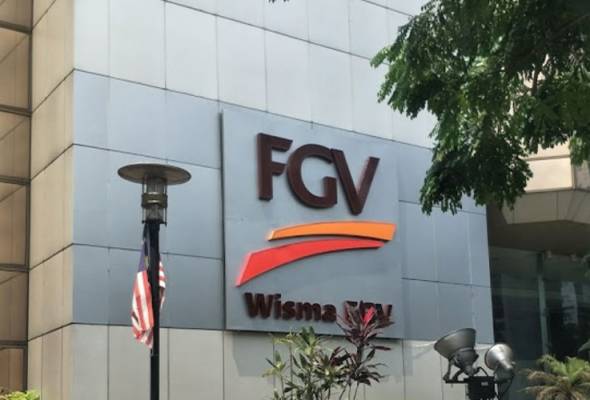
Published by Astro Awani, New Straits Times, Business Today, The Malaysia News, Focus Malaysia, The Sun Daily, Borneo Today & Biztech.asia, images from Astro Awani.
The announcement by the US Customs and Border Protection (CBP) on Sep 30 that palm oil and palm oil products by Felda Global Ventures (FGV) is now subject to a Withhold Release Order (WRO), which effectively means their detention at entry ports, has caught Malaysia by surprise.
According to the CBP, the WRO is “the result of a year-long investigation that revealed forced labour indicators including abuse of vulnerability, deception, restriction of movement, isolation, physical and sexual violence, intimidation and threats, retention of identity documents, withholding of wages, debt bondage, abusive working and living conditions, and excessive overtime. The investigation also raised concerns that forced child labour is potentially being used in FGV’s palm oil production process”.
Shocking allegations, indeed.
But let’s hear out FGV, first.
Prior to the WRO, the US CBP had already received a petition submitted by a coalition of non-governmental organisations (NGOs) in 2019, which contained several allegations made against FGV, citing a number of sources, including an article in the Wall Street Journal which was published on July 26, 2015.
FGV had already admitted some of those allegations were indeed factually accurate at that time. However, most have been corrected over the period commencing December 2018, with one major issue pertaining to the regularisation of foreign workers in Sabah that would have been completed by the end of 2019.
FGV categorically stated that, in so far as Peninsular Malaysia is concerned, the practice of utilising labour provided by contractors has been banned by Nov 2018 onwards. Thus, all foreign workers in FGV’s operations in Peninsular Malaysia are engaged directly from their countries of origin using recruitment agencies authorised and approved by those governments.

Now, in response to the WRO, FGV has had to re-highlight and reiterate the remedial and corrective actions it’s been taking for the past five years – ever since the issue of forced labour emerged in public discourse. These include but not limited to:
- The non-recruitment or employment of refugees. Effective 2020, FGV recruits its migrant workers mainly from India and Indonesia through legal channels and processes recognised and approved by the authorities of Malaysia and the source countries.
- The non-practice of retaining workers’ passports and bolstered by the installation of a total of 32,250 safety boxes throughout all its 68 complexes, as an option for migrant workers to keep their passports safely.
- The provision of adequate housing. Over the past three years, FGV has invested approximately RM350 million to upgrade housing facilities for its workers by constructing new residences in its plantations all over the country.
- The provision of healthcare benefits, which cover annual expenses for outpatient care and an unlimited allocation for inpatient treatment.
- The membership of the Fair Labour Association (FLA). FGV is currently implementing a long-term and comprehensive action plan that comprises a number of initiatives to further strengthen various aspects of its labour practices such as the recruitment process, human rights training programmes, working and living conditions, as well as grievance mechanisms, among others.
Although FGV’s export share to the US and Canada is only 5% in total, nonetheless what ultimately matters is not just the economic and financial costs but ramifications to its image abroad with the eventual knock-on effect on Felda itself and, by extension and inclusion, the Felda smallholders.
Firstly, such allegations should be meticulously audited and verified purely based on the evidence by a third-party – appointed by both the CBP (with the consent of the US-based NGOs concerned) and FGV.
As of now, it’s very hard to definitively and conclusively establish the claims of CBP in concert with these US-based NGOs.
Should CBP reject the request by FGV to divulge and disclose the report made by the US-based NGOs, the imposition of the WRO could then be deemed as unfair and discriminatory. This is so as the evidential basis of the decision to issue the WRO can’t be objectively determined.
But what else could FGV do – to allay concerns raised by the US-based NGOs and to “salvage” its reputation?
This brings us to the second point. And that is, FGV should go on a public relations blitz.
For example, it should co-invest in the production of a documentary that can be independently verified by NGOs concerning the state of its foreign workers in the plantations.
CBP officials and the US-based NGOs should be invited to see for themselves the progress and improvements made to address the flaws in the labour procurement as well as treatment of foreign workers in FGV plantations.
Finally, the Ministry of Plantation Industries and Commodities (MPIC) together with the Ministry of International Trade and Industry (Miti) should reach out to their US counterparts and work towards resolving the issue sustainably and decisively on a government-to-government (G2G) basis.
It’s therefore commendable that for starters the Minister of Plantation Industries and Commodities, Khairuddin Razali, is planning to submit a report on the labour situation in the Malaysian oil palm plantation sector to the United States Labour Department and other international organisations to avoid further restrictions on Malaysian commodities.
Perhaps, there should be a call also for an independent and neutral arbitration body that could adjudicate on the matter if a resolution is not forthcoming with a decision that’s binding.
As it is, there’ll be no closure to the whole issue until and unless both parties are satisfied that their case and concerns have been heard and met.
Otherwise, Malaysia would perceive the action of imposing the WRO by CBP is based on bias and ulterior motive (like the agenda of lobbyists, rival interests, ideologues) and not evidence-based.
Jason Loh Seong Wei is Head of Social, Law and Human Rights at EMIR Research, an independent think tank focused on strategic policy recommendations based on rigorous research.
Diterbitkan oleh Berita Harian & Kementerian Perusahaan Perladangan dan Komoditi (MPIC), gambar daripada Berita Harian.
Pengumuman Kastam dan Perlindungan Sempadan (CBP) Amerika Syarikat (AS) pada 30 September lalu bahawa minyak dan produk sawit Felda Global Ventures (FGV) yang kini dikenakan Perintah Pelepasan Tahan (WRO), mengejutkan Malaysia – yang pada dasarnya menghalang kemasukannya di pelabuhan.
Menurut CBP, WRO dikenakan susulan ‘hasil penyelidikan selama setahun yang menunjukkan penggunaan buruh paksa, termasuk penyalahgunaan kerentanan, unsur tipu muslihat, pembatasan pergerakan, pengasingan, kekerasan fizikal dan seksual, ugutan serta ancaman, penyimpanan dokumen pengenalan diri, penahanan gaji, perhambaan hutang, keadaan kerja dan kehidupan yang ditindas serta kerja lebih masa yang keterlaluan.
Siasatan juga menimbulkan kebimbangan bahawa ada potensi buruh paksa kanak-kanak yang digunakan dalam proses pengeluaran minyak sawit FGV.
Sebelum WRO dikenakan, CBP sudah menerima petisyen daripada gabungan badan bukan kerajaan (NGO) pada 2019 yang mengandungi beberapa tuduhan terhadap FGV. Tuduhan dibuat bersandarkan petikan beberapa sumber, termasuk satu artikel Wall Street Journal yang diterbitkan pada 26 Julai 2015.
FGV mengakui beberapa tuduhan terbabit adalah fakta pada masa itu. Namun, kebanyakannya diperbaiki mulai Disember 2018 dengan satu isu utama berkaitan regulasi pekerja asing di Sabah yang sepatutnya diselesaikan pada akhir 2019.
FGV secara tegas menyatakan, dalam kes Semenanjung, amalan menggunakan tenaga kerja yang disediakan kontraktor dilarang pada November 2018 dan seterusnya.
Oleh itu, semua pekerja asing dalam operasi FGV di Semenanjung diperoleh secara langsung dari negara asal mereka menggunakan agensi pengambilan yang diiktiraf dan diluluskan kerajaan masing-masing.
Sekarang, sebagai tindak balas kepada WRO, FGV harus menyoroti dan mengulangi tindakan pemulihan dan pembetulan yang dilakukannya selama lima tahun terakhir, iaitu sejak isu buruh paksa muncul dalam wacana umum. Ini termasuk, tetapi tidak terhad kepada:
Pertama, tiada pengambilan pelarian. Mulai tahun ini, FGV merekrut pekerja migrannya terutama dari India dan Indonesia melalui saluran dan proses yang sah di sisi undang-undang dan diluluskan pihak berkuasa Malaysia dan negara sumber.
Kedua, penyimpanan pasport pekerja tidak lagi diamalkan dan diperkuat dengan pemasangan 32,250 kotak keselamatan di seluruh 68 kompleksnya. Ia sebagai pilihan bagi pekerja migran untuk menyimpan pasport mereka dengan selamat.
Ketiga, penyediaan perumahan yang mencukupi. Selama tiga tahun terakhir, FGV melabur kira-kira RM350 juta untuk meningkatkan kemudahan perumahan bagi pekerjanya dengan membina kediaman baharu di ladang seluruh negara.
Keempat, penyediaan faedah penjagaan kesihatan. Ia meliputi perbelanjaan tahunan untuk rawatan pesakit luar dan peruntukan tidak terhad untuk rawatan pesakit dalam.
Kelima, keahlian Persatuan Buruh Adil (FLA). FGV kini melaksanakan rancangan tindakan jangka panjang dan menyeluruh yang merangkumi sejumlah inisiatif untuk memperkukuhkan lagi pelbagai aspek amalan pekerjanya seperti proses pengambilan pekerja, program latihan hak asasi manusia, keadaan kerja dan kehidupan serta mekanisme aduan antara lain.

Walaupun bahagian eksport FGV ke AS hanya lima peratus, yang penting bukan kos ekonomi dan kewangan, tetapi juga kesan reputasinya di luar negara dengan kesan seterusnya terhadap FELDA sendiri dan secara amnya, pekebun kecil FELDA.
Oleh itu, pertama sekali, tuduhan harus diaudit dan disahkan dengan teliti berdasarkan bukti oleh pihak ketiga – yang dilantik CBP (dengan persetujuan NGO yang berpusat di AS, sebagai kepastian, jika perlu) dan FGV.
Kini, ia sangat sukar untuk mengesahkan dakwaan CBP bersama NGO yang berpusat di AS adalah mutakhir dan konklusif.
Jika CBP menolak permintaan FGV untuk menyerahkan laporan dibuat NGO berpusat di AS, maka pengenaan WRO boleh dianggap tidak adil dan berat sebelah. Asas bukti keputusan mengeluarkan WRO tidak dapat ditentukan secara objektif.
Apa lagi dapat dilakukan FGV untuk meredakan kebimbangan yang ditimbulkan NGO berpusat di AS dan ‘menyelamatkan’ reputasinya? Ini membawa kita kepada ulasan kedua.
FGV harus melabur bersama dalam pembuatan dokumentari yang dapat disahkan secara bebas oleh pihak NGO mengenai keadaan pekerja asing di ladangnya.
Pegawai CBP dan NGO yang berpusat di AS juga harus diundang untuk melihat sendiri kemajuan dan penambahbaikan dilakukan untuk mengatasi kekurangan dalam pemerolehan tenaga kerja dan juga penjagaan pekerja asing di ladang milik FGV.
Akhir sekali, Kementerian Perusahaan Perladangan dan Komoditi bersama Kementerian Perdagangan Antarabangsa dan Industri harus mendampingi rakan sejawat masing-masing di AS.
Usaha juga harus digerakkan kedua-dua kementerian itu untuk menyelesaikan masalah yang melanda ini mengguna pakai saluran kerajaan-ke-kerajaan (G2G).
Jason Loh Seong Wei merupakan Ketua Bahagian Sosial, Perundangan dan Hak Asasi di EMIR Research, sebuah badan pemikir bebas yang berfokuskan kepada pencernaan saranan-saranan dasar strategik berteraskan penyelidikan yang terperinci, konsisten dan menyeluruh.

